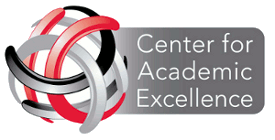The Flipped Literacy Lesson: Putting the responsibility of making meaning back into students’ hands
Location
Dolan School of Business
Start Date
29-5-2014 5:00 PM
End Date
29-5-2014 6:15 PM
Session Type
Poster Presentation
Description
This poster session will highlight specific applications of the flipped learning classroom approach to promote active reading in the elementary classroom. Screencasted, annotated lessons, online resources such as Khan Academy, Ted Ed, You Tube, Teacher Tube, Annenberg Media, etc. Teachers seeking student-centered, evidence-based reading strategies as per the ELA Common Core State Standards, will learn about an innovative way to increase depth of comprehension through student ownership of learning. Collaborative, problem based learning will play a key role in the classroom activity component. Classroom based research data demonstrating impact on student learning will be collaboratively analyzed by a research team of graduate students and higher education faculty.
Topic Designation
Teaching & Learning, Technology
Presenter Bio(s)
Robin James
Assistant Professor of Education & Educational Psychology, Masters of Science in Education Program
Western Connecticut State University
Jennifer Menniti
Graduate student and 2nd grade teacher
Western Connecticut State University
Jessica O'Connell
Graduate student and 5th grade teacher
Western Connecticut State University
The Flipped Literacy Lesson: Putting the responsibility of making meaning back into students’ hands
Dolan School of Business
This poster session will highlight specific applications of the flipped learning classroom approach to promote active reading in the elementary classroom. Screencasted, annotated lessons, online resources such as Khan Academy, Ted Ed, You Tube, Teacher Tube, Annenberg Media, etc. Teachers seeking student-centered, evidence-based reading strategies as per the ELA Common Core State Standards, will learn about an innovative way to increase depth of comprehension through student ownership of learning. Collaborative, problem based learning will play a key role in the classroom activity component. Classroom based research data demonstrating impact on student learning will be collaboratively analyzed by a research team of graduate students and higher education faculty.


